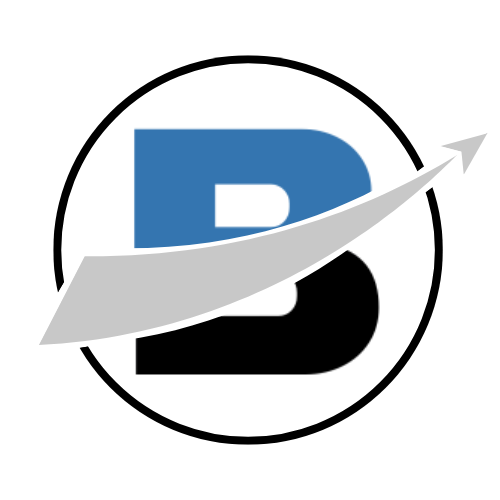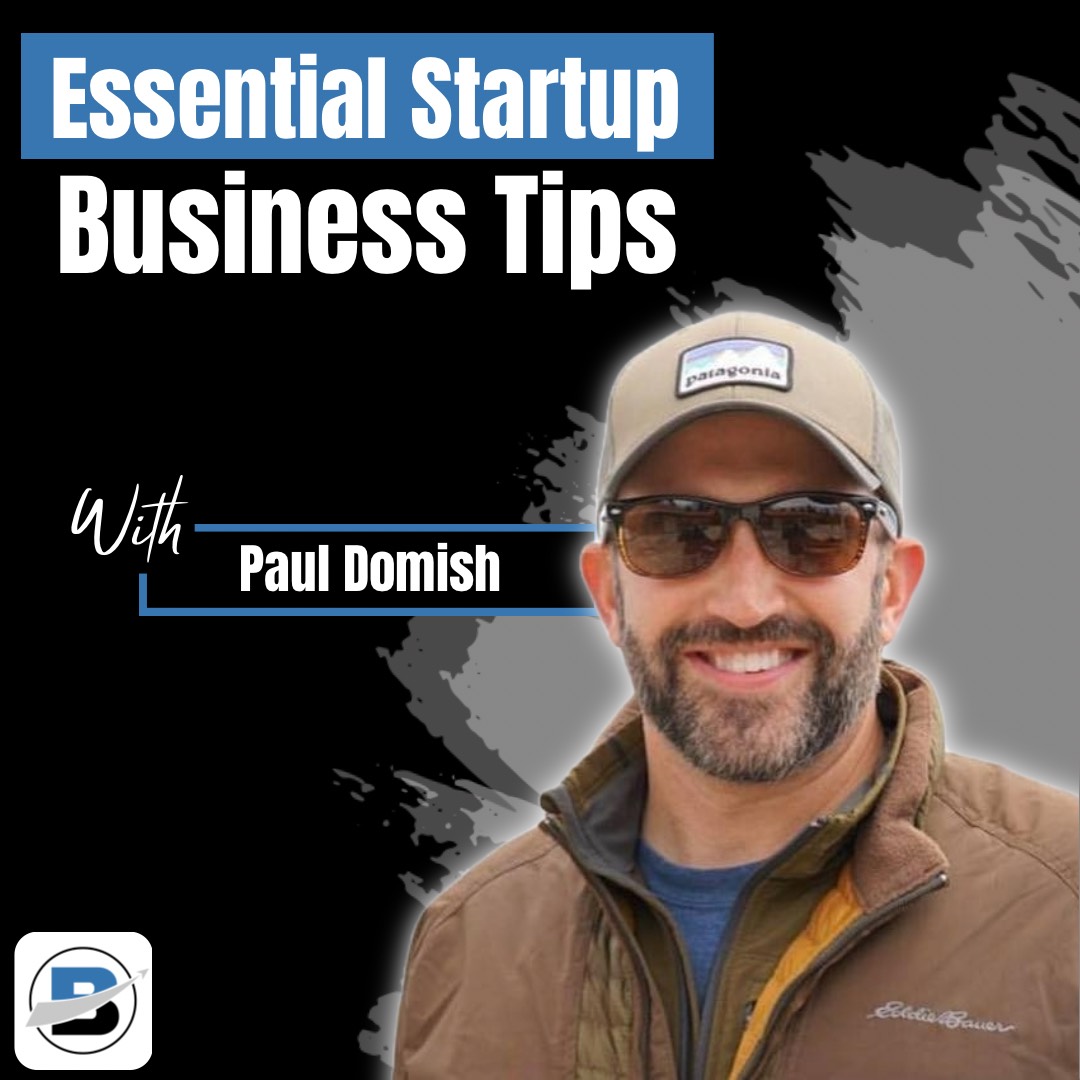How to Build a Business That Supports Your Ideal Lifestyle - Drifter Vans
Introduction
Have you ever dreamed of owning a business that gives you the freedom to travel, work from anywhere, and live life on your own terms? Many entrepreneurs start businesses with the hope of achieving financial freedom, but too often, they find themselves trapped in long hours, endless stress, and little time for what truly matters.
In this episode, we sat down with Paul Domish, founder of Drifter Vans, to talk about how he built a business that allows him to live in South America while managing multiple ventures remotely. Paul’s journey from contracting to bootstrapping successful businesses is packed with valuable insights for young entrepreneurs and small business owners who want to build a company that supports their ideal lifestyle.
If you're looking for practical strategies to start, grow, and sustain a business while keeping flexibility and freedom as priorities, this article is for you.
Building a Business That Fits Your Lifestyle
One of the greatest aspirations for young entrepreneurs is to build a business that offers them the freedom to live life on their own terms. However, many end up building a business that becomes a prison, requiring constant attention and leaving them feeling trapped. Paul, however, made a deliberate decision to design his businesses to operate without requiring his constant presence, allowing him to live abroad while managing things remotely.
Here’s a deeper look into how you can do the same:
1. Automate and Delegate Tasks
Every entrepreneur knows that running a business means wearing many hats. But over time, trying to do everything yourself can lead to burnout and lost opportunities. Automation is the key to minimizing day-to-day management. Paul used tools and software to automate repetitive tasks—whether it’s scheduling, invoicing, marketing campaigns, or customer service. This frees up your time to focus on strategic decisions rather than being bogged down in operations.
At the same time, delegating tasks to skilled team members allows you to leverage their expertise and free up your energy for higher-value work. This combination of automation and delegation is the cornerstone of building a business that operates without constant oversight. The key is to set clear processes and invest in the right tools to ensure everything runs smoothly.
2. Choose a Business Model That Aligns With Your Lifestyle
Not all businesses are created equal when it comes to offering flexibility. If freedom and flexibility are important to you, you must be selective in your business model. For instance, businesses that require physical presence or hands-on involvement, such as opening a brick-and-mortar store or starting a service-based business that requires daily client interaction, may not provide the lifestyle you're aiming for.
Paul chose business models that allowed him to operate remotely. Digital products, online services, e-commerce, and affiliate marketing are great examples of business models that can be scaled with minimal physical presence. For instance, an online course or membership site can be automated, where once content is created, it generates passive income without the need for constant maintenance. Identifying business models that naturally align with your desired lifestyle will save you from frustration later on.
3. Be Willing to Adapt and Evolve
The ability to pivot is essential for young entrepreneurs looking to sustain freedom in their business. No matter how well you plan, unexpected challenges and opportunities will arise. Instead of rigidly sticking to a plan that may no longer serve your goals, be willing to adjust course. Whether it’s adopting new technology, exploring alternative revenue streams, or tweaking your offerings to better meet customer needs, adaptability is crucial for long-term success.
Remember, the goal of entrepreneurship isn’t to make your business fit into a box but to create a dynamic business that evolves with your changing needs, market conditions, and personal goals.
Testing Ideas Quickly and Finding Your Strengths
One of Paul’s most valuable lessons from his entrepreneurial journey is the idea of testing fast and failing fast. Too many entrepreneurs get caught up in analysis paralysis, overthinking ideas instead of testing them in the market. Here’s how you can avoid getting stuck and move towards your business goals faster:
1. Try Different Business Ideas With Minimal Investment
One common mistake new entrepreneurs make is investing massive amounts of time and money into an idea before validating whether there’s even demand for it. Instead of building a full-scale business upfront, Paul recommends starting small. Minimum viable products (MVPs) are the way to go.
For instance, if you're interested in launching a new software, instead of spending a year developing it, create a basic version, and offer it to a small group of users. The feedback you receive will tell you whether it’s worth moving forward. By testing quickly and cheaply, you can experiment with multiple ideas without committing substantial resources to a concept that might not work.
2. Identify What You’re Naturally Good At
Another powerful insight is to understand your strengths and use them to your advantage. Some entrepreneurs are great at big-picture visioning, while others excel at executing day-to-day operations. By figuring out where your natural abilities lie, you can build a business that plays to your strengths.
If you’re a big thinker and love developing strategies, you might be better suited to being the CEO of your business and delegating the implementation. If you thrive on details and execution, then you might find fulfillment in the operational side of your business. Recognizing this will help you structure your business more efficiently and prevent burnout by aligning your role with your innate talents.
3. Don’t Be Afraid to Pivot
Failure is not the end; it’s an opportunity to learn and grow. In fact, failing quickly and adjusting your approach is a huge advantage. Paul stresses that holding onto failing ideas out of pride or fear can lead to wasted time and missed opportunities. If something’s not working, pivot—and pivot fast. Whether it’s changing your target market, modifying your product, or finding new ways to monetize, don’t be afraid to try a different approach. This mindset not only helps you stay agile but also fosters resilience.
As an entrepreneur, the ability to test, fail, adapt, and move on quickly is essential to building a sustainable business that serves both your personal goals and professional aspirations.
---
The idea of building a business that aligns with your lifestyle is an exciting one, but it requires intentional planning and action. By automating, delegating, choosing the right business model, adapting quickly, and testing ideas with minimal risk, you can build a business that frees up your time and energy rather than consumes it. Remember, the freedom you seek is a direct result of the systems and strategies you put in place from the start—so build with intention, stay flexible, and embrace the journey of growth.
Key Lessons for Aspiring Entrepreneurs
The Power of Partnerships
One of the most valuable lessons Paul shared is the importance of choosing the right business partners. He compares partnerships to romantic relationships—they require trust, respect, and complementary skills.
Having a great partner allows you to scale faster and take on bigger opportunities. But a bad partnership can be even worse than failing alone. When looking for a co-founder or business partner, Paul advises:
Find someone with strengths that balance your weaknesses. If you’re great at sales but terrible at operations, look for someone who thrives in that area.
Ensure mutual respect and trust. Business challenges will come up, and you need a partner you can rely on.
Establish clear roles and expectations from the start. Misalignment in vision or responsibilities can cause major problems later on.
Focus and Avoiding Distractions
One of the biggest mistakes new entrepreneurs make is trying to do too many things at once. Paul emphasizes the importance of staying focused on what truly matters.
Every business opportunity or new venture takes up time and energy. If you spread yourself too thin, you risk losing sight of your primary goal.
To stay focused:
Ask yourself: Does this align with my long-term vision? If an opportunity doesn’t contribute to your ideal lifestyle, it might not be worth pursuing.
Avoid distractions by setting boundaries. Just because you can do something doesn’t mean you should.
Regularly reassess your priorities. Your business should be helping you achieve your goals, not taking you away from them.
Continuous Learning and Business Growth
Paul is a firm believer in lifelong learning. He makes time every day to read for at least 30 minutes—a habit that has helped him grow his businesses.
If you want to succeed in business, you must invest in yourself. Some of the books Paul recommends include:
“Contagious” by Jonah Berger – Learn how ideas and businesses spread.
“The Tipping Point” by Malcolm Gladwell – Understand the small changes that create big success.
“Million Dollar Leads” by Alex Hormozi – A deep dive into customer acquisition strategies.
He also listens to business podcasts but warns against blindly following any single guru. Every business is different, and what works for one entrepreneur may not work for another.
Building a Business That Fits Your Lifestyle
Creating a Business That Supports Freedom
Many entrepreneurs build businesses that end up controlling their lives instead of giving them freedom. Paul intentionally designed his businesses so that he could manage them remotely while traveling and living abroad.
Here’s how he did it:
Automate and delegate tasks. The more systems you have in place, the less you have to manage daily.
Choose a business model that aligns with your lifestyle. If freedom and flexibility are priorities, avoid businesses that require constant hands-on attention.
Be willing to adapt and evolve. Your business needs to support your goals—not the other way around.
Testing Ideas Quickly and Finding Your Strengths
One of Paul’s biggest takeaways? Test fast and fail fast.
Too many entrepreneurs get stuck overthinking instead of just starting. Paul recommends:
Try different business ideas with minimal investment. Instead of spending months or years developing a product, launch a small version and see if there’s demand.
Identify what you’re naturally good at. Some people thrive as visionaries, while others excel in execution. Understanding your strengths helps you build a business that fits you.
Don’t be afraid to pivot. If something isn’t working, adjust quickly instead of holding onto a failing idea.
Conclusion: Take Action on Your Business Dream
Paul Domish’s journey is proof that entrepreneurship can be a path to freedom and flexibility—if you build your business the right way. His story highlights the importance of focus, smart partnerships, and testing ideas quickly.
For young entrepreneurs and small business owners, the key takeaway is clear:
Start now. Don’t overthink—test your ideas and adapt as you go.
2. Choose a business model that supports your ideal lifestyle. Avoid creating a business that traps you in long hours and stress.
3. Keep learning and growing. Whether through books, podcasts, or mentorship, continuous learning is essential for success.
If you’re looking for guidance on your own business ideas, Paul is open to connecting on LinkedIn or through his company, Drifter Vans. Reach out to him and get insights from someone who has successfully built businesses that support the life he wants to live.

